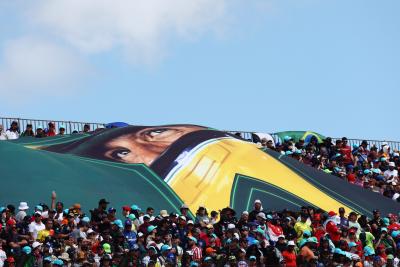“The end of Formula 1” prediction made after Ayrton Senna’s death
Bernie Ecclestone reflects on the tragedies at the 1994 F1 San Marino Grand Prix
Max Mosely thought that Ayrton Senna’s death would be “the end” of F1, Bernie Ecclestone has claimed.
The legendary Brazilian driver died 30 years ago, on May 1st 1994, after an accident at the San Marino Grand Prix.
Senna’s death was the second of the weekend, after Roland Ratzenberger also tragically died in an accident.
"Max Mosley said to me afterwards that he believed it would be the end of Formula One,” Ecclestone was quoted by Sky News.
“I said, 'I think you are wrong and we will have to see'.
"We hoped it wouldn't cause what Max had suggested might happen, but it was just a disaster.
“It wasn't a good weekend, and it seems to me a lot longer than 30 years. He was just so unlucky to die in that accident.
"It was just a disastrous weekend.
"If you think about all the things that happened, with Roland crashing and never getting out of his car, and then Senna, I really don't think it would be possible for it to happen again."
The grand prix restarted after Senna’s crash, and was won by Michael Schumacher.
Ex-F1 boss Ecclestone said: "Should we have stopped the race? I don't think so. It wouldn't have helped him in any way, shape or form.
"When these things happen, they all happen so quickly that you don't really have that much time to think. Legally, it should have been stopped, because we now know he died at the circuit.
"But in the end, it came down to commercial problems, people who would have wanted refunds and all these sorts of things. And the other side of it, wasn't really taken into consideration.
"But I hope we will never see something like that again, and I think today, with the way everything has improved with safety, thank God, the chances are so much smaller."










